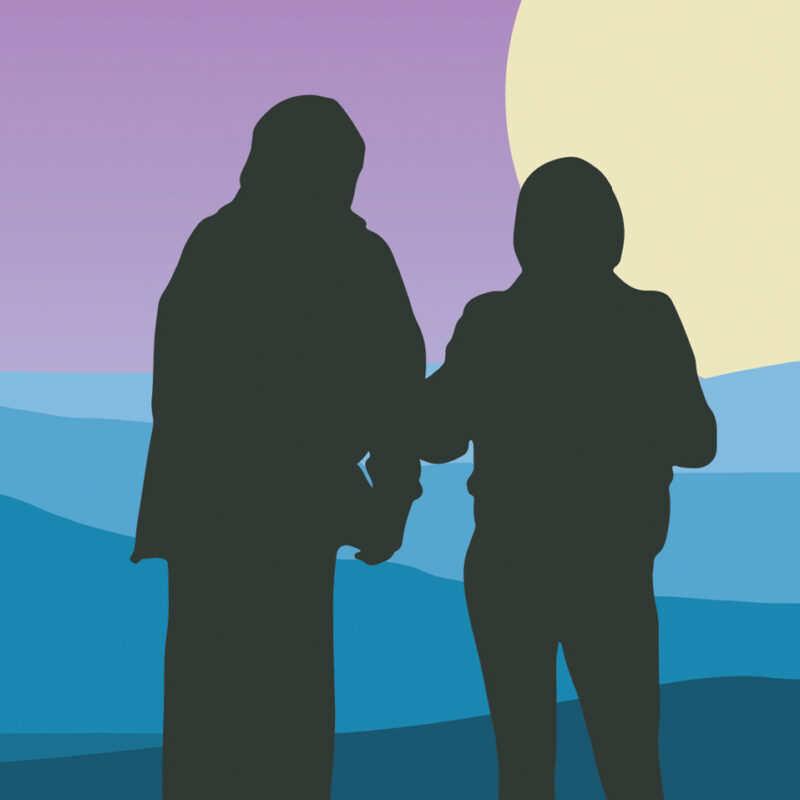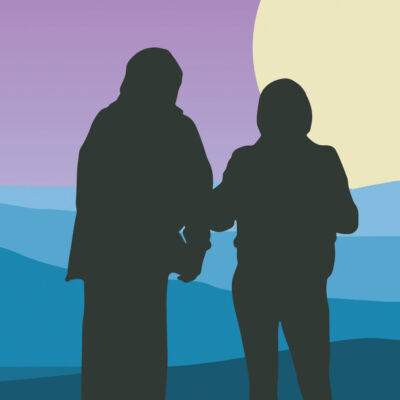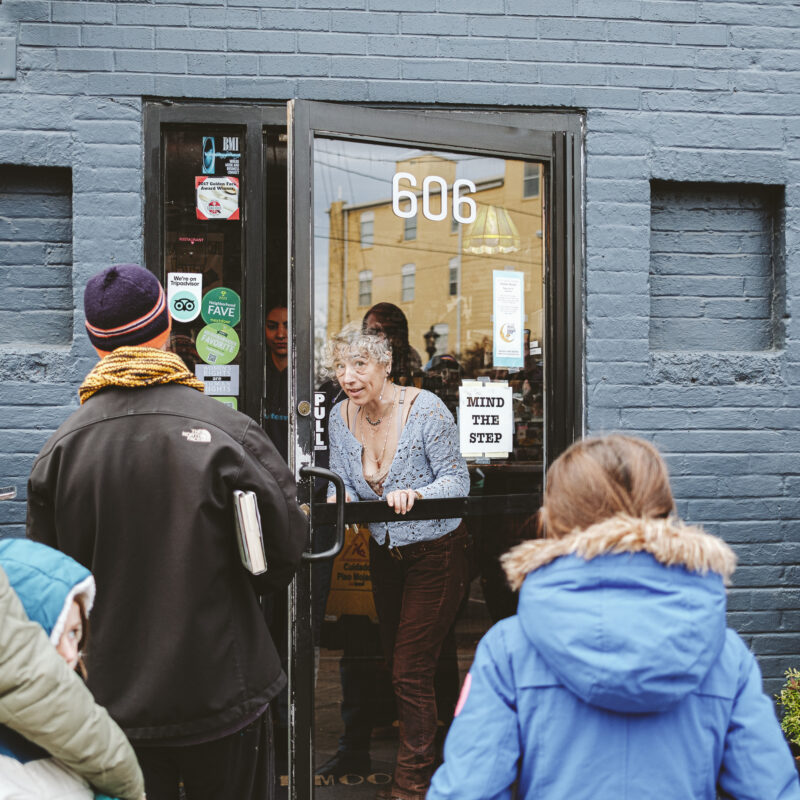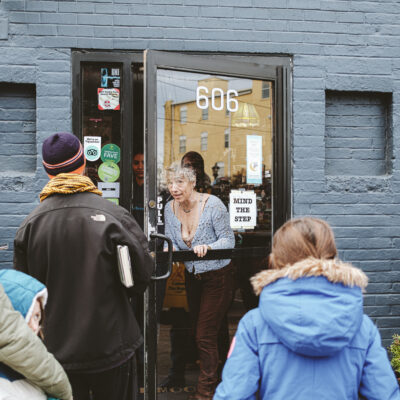The Tom Tom Festival is doubling down on inclusivity while the rest of the country seems to be betting against it.
The theme of the 2025 festival’s opening day is “civic futures,” and the idea, according to organizer Paul Beyer, is to bring the most influential local minds together to talk about their “big vision” for the community.
Billed as “a multi-sector gathering designed to ignite visionary thinking and inclusive regional storytelling,” this is peak intersectionality—at a time when many folks are turning away from the idea that hidden, systemic forces are driving our experiences.
“This is a new program for us, and I think of it as an opportunity to explicitly bring out some of the biggest topics and conversations that are facing the future of our community,” Beyer says. “It’s not just people talking on a stage.”
Beyer, who founded the Tom Tom Foundation in 2012, has never settled for what everyone else is doing. Over 13 years, he’s built the brand and festival into a central driver of Charlottesville’s intellectual direction through a determination to help craft a better community. Since the festival launched, it has grown steadily more expansive and aspirational, year after year.
Opening the Evolve Conference wing of the festival on April 16 will be leaders in multiple disciplines— University of Virginia President Jim Ryan, Monticello President Jane Kamensky, Charlottesville Mayor Juandiego Wade, and Telus Digital Solutions President Tobias Dengel, along with 13 others—exploring “a story about the future that includes everyone.”
“You can’t just give the megaphone to the university, or to leaders in biotech, or to historians,” Beyer says.
Instead, you can bring them all together and see what happens. Following is a look at several topics Beyer’s band of bigwigs plans to address.
Democracy at 250
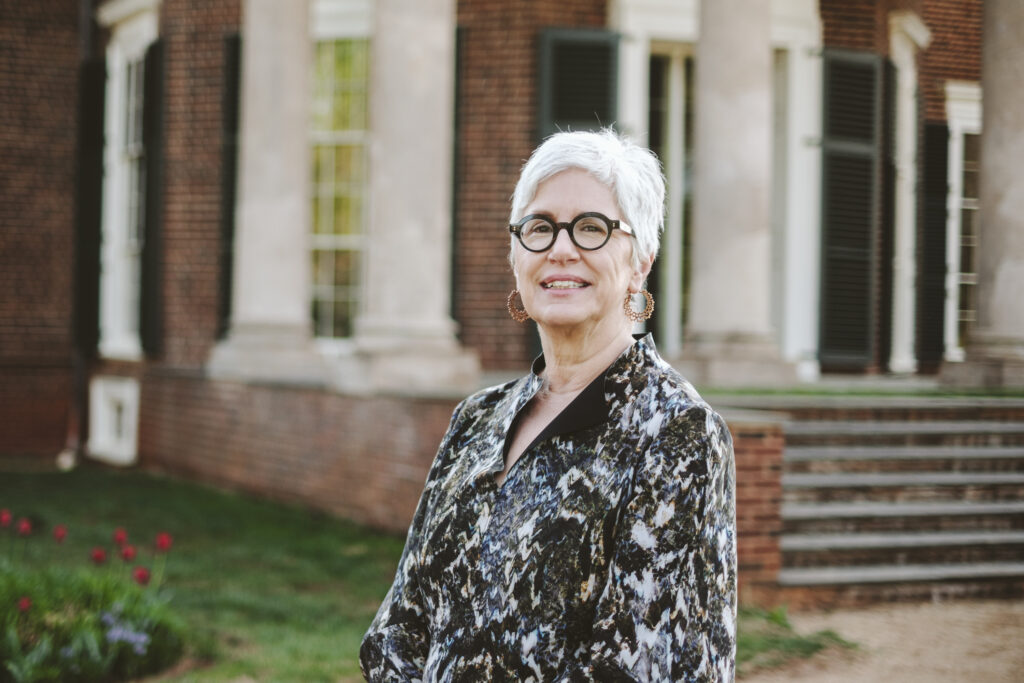
Photo: Eze Amos.
The United States will reach its 250th birthday next year, and Tom Tom is out front. The “Reflecting on the Past, Imagining the Future: American Democracy at 250” forum features Kamensky and Melody Barnes, executive director of the UVA Karsh Institute of Democracy, and intends to “reflect on the bumpy road that got us here and, more importantly, the road ahead.”
Organizers say Monticello’s unique role in shaping local history and beyond is of particular interest. Naturally, Kamensky agrees.
“Charlottesville’s Black community gets its start from the freed slaves at Monticello,” she says. “I would love to talk…about how 2026 can change the story Charlottesville tells about itself.”
Storytelling is set to have a central role in the Evolve Conference’s civic futures track, and the underlying message is that the community’s outward-facing tale has in some ways been hijacked by the Unite the Right rally of 2017 and its fallout. But Kamensky, who moved to C’ville in January 2024 to direct Monticello and the Thomas Jefferson Foundation, has an optimistic view of the storyline outsiders see.
“I think we have an extraordinary collection of cultural contributors—writers, artists, community engagement workers—drawn by the university and beyond. What if we viewed 2026 as a civic storytelling moment for all of us?” she asks. “Can we mobilize ourselves as a village of storytellers?”
The innovation economy
Technology, research, workforce development, and investment stand to be critical to the future of local innovation, Evolve organizers say—but none of it will thrive without collaboration among the City of Charlottesville, Albemarle County, and UVA.
“The Innovation Economy: A Coalitional Model for Building the Region’s Future for Technology and Entrepreneurship” will explore the idea, with contributions from Ryan, former U.S. House of Representatives member L.F. Payne, Albemarle County executive Jeff Richardson, and City Manager Sam Sanders.
With input from all levels of government, the forum intends to consider how previous successful municipal and University of Virginia projects might serve as a roadmap for cultivating innovation going forward. “UVA has a responsibility to be a good neighbor in the Charlottesville/Albemarle region,” Ryan says. “But we can’t do that work alone; the only way for us to build a bright future for this community is by partnering with our neighbors and organizations in the community and working together on the challenges that we face.”
Ryan says he’s made working with local government agencies a priority since he became university president in 2018; the Innovation Economy forum will give him, as well as Payne, Richardson, and Sanders, a chance to say more.
Charlottesville’s narrative
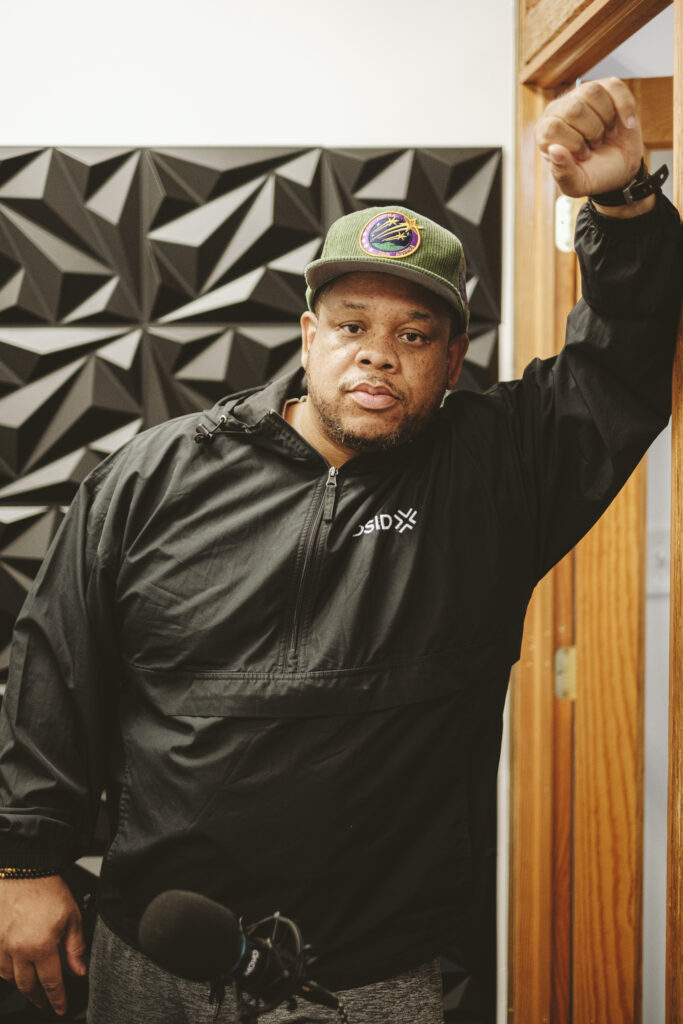
Dengel will join Jayme Swain of Virginia Public Media Corporation and Vinegar Hill Magazine’s Sarad Davenport in a conversation moderated by Michael Lenox of UVA Innovates just before the civic futures track lunch break. The panelists indicate they will formally address the ways the local region can shape its own story for the rest of the world.
“I want us to ask, ‘How do we tell a fuller story, a broader story that includes people who may not necessarily be a part of the mainstream social narrative?’” Davenport says. “And that all plays into economic development.”
Davenport points out that Charlottesville’s story isn’t just beset by what outsiders saw in August of 2017. It’s a complex story that—in fact as well as in fable—hasn’t always embraced inclusivity. From the razing of the historically Black neighborhood that is Davenport’s magazine’s namesake, up to the present, the community has racial, ethnic, and economic divides that deserve deep consideration.
“I do think we have some things we can do and build upon,” Davenport says. ”But it’s not a secret that housing costs are an issue. How are we going to build the social infrastructure we need for all the growth that is projected to happen?”
Davenport hopes the forum, “Charlottesville’s Narrative: Who Shapes Our Story,” will allow speakers and attendees to think about what he sees as a window of opportunity closing—an ever-shrinking portal for addressing wealth gaps that population growth may soon close forever.
In addition to traditional media, technology has taken a growing role in storytelling, and Dengel will provide the conversation with insight from his experience throughout the tech sector. Before taking his current positions as president of Telus Digital Solutions and WillowTree, Dengel built his career by helping companies like AOL International and Leads.com keep up with the changing digital landscape.
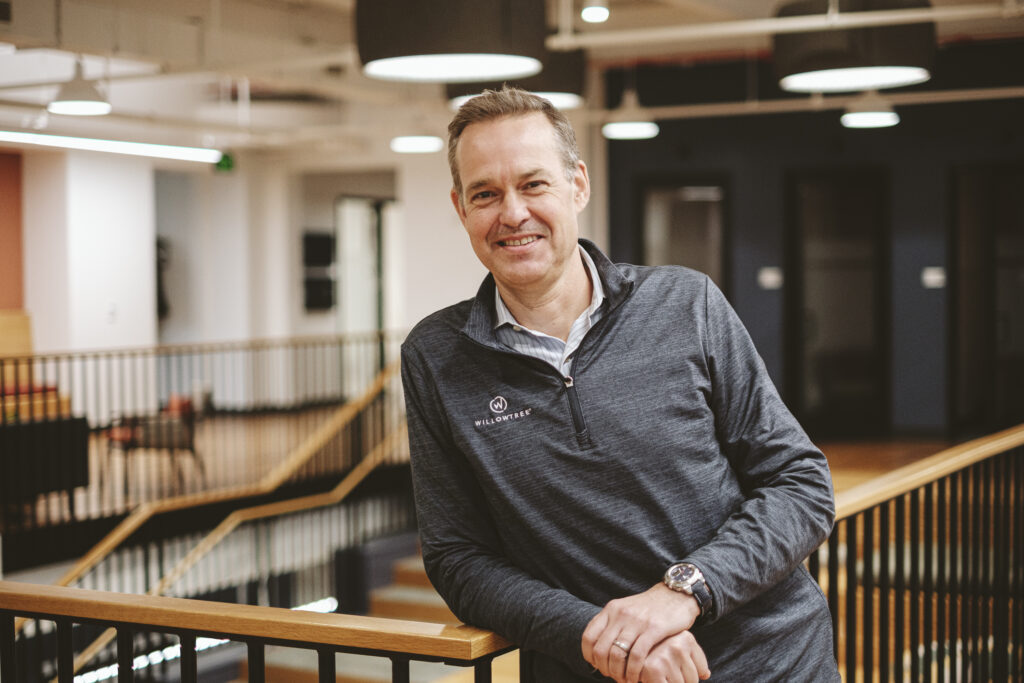
What’s next
To close out the civic futures track, Beyer will join United Way of Greater Charlottesville CEO Ravi Respeto, Friends of Charlottesville Downtown Executive Director Greer Achenbach, and MindSalt, Inc. co-founder David Deaton for a capstone conversation. After a full day of tackling sweeping ideas from iconic local influencers, what are the key themes? And more importantly, what are the next steps?
“There is a kind of summit component to this,” Beyer says. “Tom Tom has always—if you look at every day of the festival—asked, ‘Who are the leaders who are making change, and how do we catalyze that?’ Civic futures is just a more formalized approach.”
Indeed, Beyer says the new festival track embodies what the Tom Tom Foundation does year-round, outside the bounds of the annual festival: summits, forums, and conversations designed to build community and sculpt the future.
“Don’t just listen—lead,” the capstone forum description instructs, and Beyer thinks that’s a message that will resonate with a lot of people these days.
“I would say that, in this moment of social unrest, we really are seeing that local issues matter a lot,” he says. “I think that over the years, these kinds of localized conversations that focus on areas where communities can come together as neighbors—where there is relationship capital to build trust and friendship—have faded. But these ideas have been very important for a long time.”
The annual Tom Tom Festival and its concept-focused conference have always been forward-looking. Now, Beyer wants to rekindle some of those old ideas.
“Our differences are not insurmountable,” he says. “We can find a way to make people talk and bridge divides.”
Beyond evolution
Intellectual ambition anchors the Tom Tom Festival, but the five-day event isn’t short on recreational opportunities. This year’s fest features 190 events, performances, and sessions, most of which are free or offered as pay-what-you-can. “It’s important to be accessible,” Tom Tom founder Paul Beyer says. Here are four can’t-miss festival events.
Zero on Zero
Zero on Zero, from 5pm to 7:30pm April 17, is a non-alcoholic dance party at downtown’s Central Place geared toward sober and sober-curious individuals. “We wanted to highlight that there are more and more spaces for people interested in a mindful approach to drinking,” Beyer says. “We want to offer real social opportunities outside of an alcohol-focused setting.”
In addition to the flagship Zero on Zero dance party on Thursday night of the festival, Beyer says other events throughout the week will include bars dedicated to non-alcoholic bevvies.
Prom Prom
Another rhinestone in the Tom Tom dance series, Prom Prom caps the festival’s Saturday events from 9pm to 1am. Organizers say they hope the party will give folks all the fun of prom—the dress, the dance, the drinks—with none of the teenage awkwardness. The soiree will feature hip-hop DJs on the first floor of Common House and house music on the second.
After the Block Party
The two-day Block Party is Tom Tom’s musical cornerstone and for the first time ever, Starr Hill Presents will add a slate of official After Parties to the festival, with national talent performing at the Jefferson Theater and Southern Cafe & Music Hall. Fridays After Five will also join the jam, launching its season at Tom Tom with a parade and performance by Elby Brass and the Elite Empire Dance Team.
The Block Party begins on April 18 at 5pm and spans three main stages and a family stage along the Downtown Mall, with dance and variety shows sprinkled in with the tunes.
Brave Hearts, Calm Minds
From 1pm to 4pm on Tom Tom’s final day, the Brave Hearts, Calm Minds event will honor our past and present servicepeople. Eastwood Farm and Winery will host the inaugural event, which aims to give those who serve and those who love them a space for “camaraderie, healing, and mutual support.” Highlights include wellness workshops, info sessions with veterans affairs representatives, and live music by Vietnam veteran Roy Hughes.



